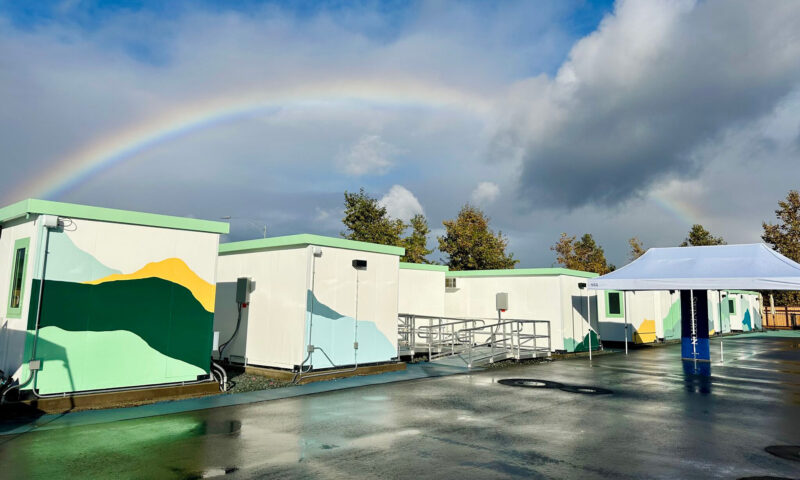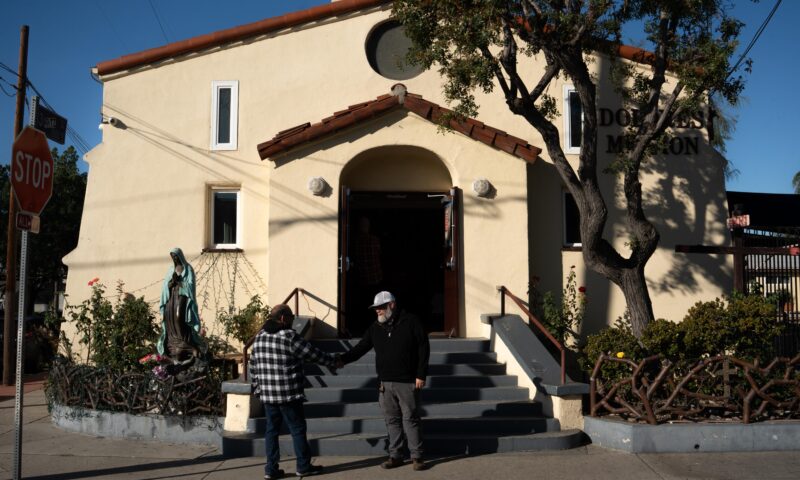Labor & Economy
Wall Street Banks on Deportations
Earlier this month, the Seattle City Council voted not to renew its contract with Wells Fargo, pulling more than $3 billion in city funds from the Wall Street giant. And rightly so—Wells Fargo defrauded over two million of its own customers.

Earlier this month, the Seattle City Council voted not to renew its contract with Wells Fargo, pulling more than $3 billion in city funds from the Wall Street giant. Headlines focused on the bank’s financing of the Dakota Access Pipeline and its recent fake account scandal. And rightly so—Wells Fargo defrauded over two million of its own customers.
But Seattle divested also because Wells Fargo bankrolls private prison companies. The city’s resolution highlighted the privately operated Northwest Detention Center in Tacoma, run by GEO Group, where immigrants and refugees from across Washington state are detained as they await deportation hearings.
GEO Group and its main competitor, CoreCivic (formerly CCA), rely on financing from Wells Fargo, along with five other banks, including JPMorgan Chase and Bank of America. That means Wall Street profits from deportation.
That also means what Seattle did has broader implications. Though only a fraction of the $1 trillion Wells Fargo had in deposits last year, Seattle’s money sends a message, one that rings out not only on Wall Street but also in the White House.
President Trump keeps handing gifts to the private prison industry. Recently, new Attorney General Jeff Sessions rescinded an Obama administration order to end the use of private prisons for undocumented immigrants convicted of crimes. Earlier in the week, Trump’s Department of Homeland Security announced it would build more immigration detention centers.
It’s safe to assume GEO Group and CoreCivic will build and operate many of those centers. That’s because today’s detention system is highly privatized—65 percent of detention space is operated for profit. And it’s safe to assume Wall Street will provide some of the cash needed to build them.
By following the money, Seattle made that a little tougher. So did the University of California system and the cities of East Orange, NJ and Alameda City, CA.
There are many ways to disrupt Trump’s mass deportations, from sanctuary cities to #FreedomCities, and following the money is one of them.
But the bottom line: Public money—our money—shouldn’t be in the hands of those profiting from deportation.
Photo: Flickr Creative Commons

-

 Latest NewsDecember 10, 2025
Latest NewsDecember 10, 2025Capital & Main, L.A. Times Win Sidney Award for Reporting on Child Farmworkers
-

 Locked OutDecember 16, 2025
Locked OutDecember 16, 2025This Big L.A. Landlord Turned Away People Seeking Section 8 Housing
-

 Column - California UncoveredDecember 12, 2025
Column - California UncoveredDecember 12, 2025They Power the U.S. Economy, But Will Struggle to Afford Health Care
-

 The SlickDecember 19, 2025
The SlickDecember 19, 2025‘The Poor Are in a Very Bad State’: Climate Change Accelerates California’s Cost-of-Living Crisis
-

 Locked OutDecember 23, 2025
Locked OutDecember 23, 2025Section 8 Housing Assistance in Jeopardy From Proposed Cuts and Restrictions
-

 Column - State of InequalityDecember 11, 2025
Column - State of InequalityDecember 11, 2025A Little Place Called Home?
-

 Locked OutDecember 17, 2025
Locked OutDecember 17, 2025Credit History Remains an Obstacle for Section 8 Tenants, Despite Anti-Discrimination Law
-

 Latest NewsDecember 22, 2025
Latest NewsDecember 22, 2025Trump’s War on ICE-Fearing Catholics

